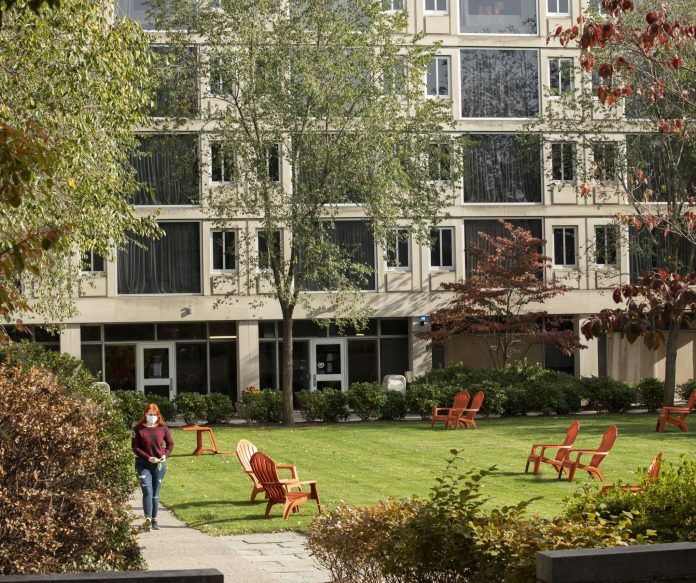Harvard College
The concentration in Computer Science is designed to teach students skills and ideas they will use immediately and in the future. Because information technology affects every aspect of society, graduates with computer science degrees have open to them an enormous variety of careers—engineering, teaching, medicine, law, basic science, entertainment, management, and countless others. Students are also eligible to apply for an A.B./S.M. degree program.
The Bachelor of Liberal Arts degree is designed for industry professionals with years of work experience who wish to complete their degrees part time, both on campus and online, without disruption to their employment. Our typical student is over 30, has previously completed one or two years of college, and works full time.
A graduate degree in computer science equips you to stay ahead of the curve and meet the computing challenges of today and tomorrow. In our rigorous master’s degree program, you’ll focus on advanced computer science theories and applications. Learning from expert faculty from Harvard and industry, you’ll acquire the skills to design, develop, and maintain complex computer and software systems.
Harvard Kenneth C. Griffin Graduate School of Arts and Sciences
Harvard School of Engineering offers a Doctor of Philosophy (Ph.D) degree in Computer Science, conferred through the Graduate School of Arts and Sciences. In addition to the Ph.D. in Computer Science, the Harvard School of Engineering also offers master’s degrees in Computational Science and Engineering as well as in Data Science. Computer scientists at Harvard pursue work in a wide range of areas including theoretical computer science, artificial intelligence, economics and computer science, privacy and security, data-management systems, intelligent interfaces, operating systems, computer graphics, computational linguistics, robotics, networks, architectures, program languages, machine learning, and visualization.
